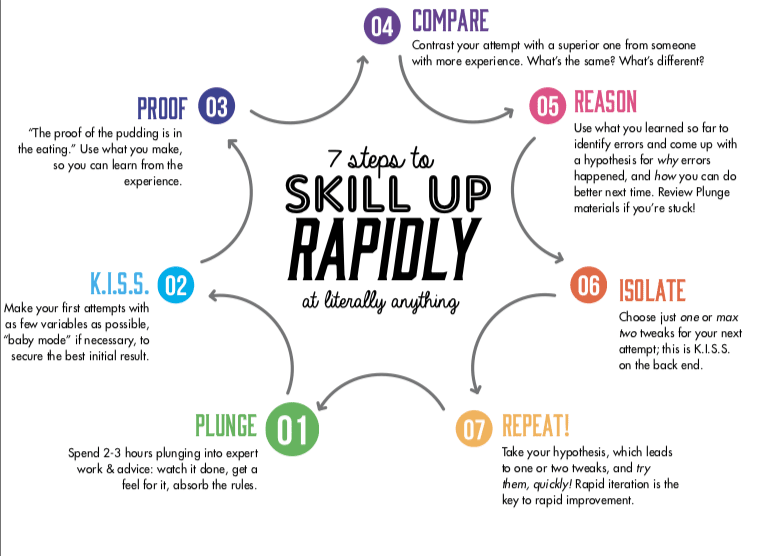Hi, my name is Amy, and all my life people have accused me of being stubborn as all hell.
Of course, those people are the ones who like to give “helpful” advice about why what I want to do is impossible, and yet that advice is based on nothing more than hearsay and speculation, so what I’ve always done is go and study the way things actually work, make my choices accordingly, and just keep succeeding.
Even though it would “never” work.
You know… stubborn.
That’s why I want to talk to you today about recessions and entrepreneurship.
Because the common advice you’ll hear? It’s hearsay and speculation.
Today, in 2020, the stock market is fluctuating. There’s a nasty virus floating around and people are “predicting” economic collapse.
It’s not at all shaping up like what happened in 2001 or 2008… but folks are understandably worried. Maybe you’re worried.
Maybe you’re thinking,
Well, I was finally ready to start a business — or I just did start a business! — Am I doomed??
Dear reader, you are not doomed. In fact, this may be your moment! No matter how crappy it feels this very second.
When the dotcom crash happened, I was young, self-employed, Extremely Online, and I paid rapt attention to the fallout, hungrily analyzing all the details I could find.
And then during the initial crush of the Great Recession — in 2008 and 2009 — I started three businesses. Yes — three.
Keep that number in mind because I didn’t start just any three businesses.
Which three businesses I started, and exactly how, will be very germane to the advice I’m going to give you over these next few essays.
Today, more than a decade later, I’m still in business and business is good! Two of my businesses are still going strong. One, I shut down because it had served it’s purpose.
So let me be completely unequivocal: Don’t panic.
Now is still a good time to start a business.
In fact, it might be the best time to start a business.
And I’m here to walk you through how to not only survive…but thrive.
I’m not going to blow sunshine up your ass, because I never do.
Instead, I’m going to explain what happens in a recession and a bunch of rules you can use to insulate yourself from it.
First let’s talk about what actually happens in a recession. Fact by fact.
Keep in mind I’m not an economist, but somebody who observes, listens, analyzes, and reads a lot of expert opinions.
Fact #1: Recessions are like clockwork.
In our current economic system, a recession will happen about once every decade.
Metaphorically, the economy will expand until it becomes more of an idea of expansion, a bet on continued expansion, than actual expansion — until it outstrips what can be supported by reality — and then it will contract, or “correct.”
NB: The Great Recession of 2008 was atypical in just about every way: scope, size, precipitousness, duration, impact. The extreme misbehavior of financial institutions triggered an actual crash. It wasn’t really a recession.
Typical corrections aren’t usually the result of all-out crashes. It’s better to think of a recession as a slow period, economically speaking.
So. Recessions are normal and typically not all that bad.
Fact #2: We may be entering into a recession right now.
A stock market fall — especially one that quickly starts to rise again — does not directly cause a recession.
Even disruptions to global supply chains and major disasters often don’t trigger global recessions, because demand doesn’t shrink when it can’t get what it needs, it grows. That’s middle school economics.
And disasters, as terrible as they are for everyone involved and their specific regions, trigger more spending, not less.
There are a lot more factors to what cause a recession than the stock market movements or a specific disaster: interest rates, the bond market, government response, large businesses, the job market, consumer behavior, and so on.
The thing that will cause this moment in time to become a real recession is the job-loss in the service sectors that have had to temporarily shut down in the United States.
But it’s not necessarily global — and the likelihood of some kind of universal payments will make a huge difference.
Fact #3: A recession would always have begin soon-ish.
Again, vis Fact #1 we’ve got a regular pattern of about “once every 10 years” and it’s been twelve.
So… there will always have been yet one more in a long line of recessions.
(I told you I wasn’t gonna blow sunshine up your ass, and that’s a fact.)
But, again, it’s something that happens regularly, it’s rarely as bad as it was in 2008 or even the much milder 2001, which were both caused by broad speculation and massively concentrating all our economic energy into a single industry — first internet stocks, second housing — which is different to what is happening economically today.
Fact #4: Recessions kills cruft and waste.
This one’s most directly relevant to you (and your future business), so pay close attention.
There’s a whole lotta data and theory on what happens in recessions.
One thing everyone agrees on: Recessions kill the walking dead.
Firms that are “inefficient” — over-extended, over-staffed, over-complicated, over-priced and under-capitalized — die, and they die first. In short, if your profit margins are slim and you spend like there’s no tomorrow, there will eventually be no tomorrow.
See also: startups that spend intensly to “prove” growth without any glimmer of profitability.
When inefficient firms do survive, they still tighten their belts: decreasing staff, closing offices or locations, slashing prices, killing product lines, and other cuts to make ends meet.
Which means people lose their jobs and have less money to spend, which causes other inefficient firms to cut or die… and so on.
It’s this self-reinforcing cascade that is a true recession.
Fact #5: Spending slows, but it doesn’t stop.
Because life goes on.
People still need and want stuff.
And critically, so do businesses.
They may have less money, and they will be more cautious, but the economy doesn’t grind to a halt in a recession.
Recessions make people and businesses into maximizers. They want to get the most out of their time and money, and they don’t often know how.
If you are an aspiring entrepreneur 👆this is your chance to shine.
Which leads to the final fact of what actually happens in a recession…
Fact #6: Recessions can be opportunities.
There are industries and businesses that actually grow in a recession.
Even in the depths of an economic contraction, regular folks spend on necessities. They also spend on affordable luxuries like fancy soap, chocolates, and movie tickets.
Sometimes even more than before, because it’s a way to cut back: instead of going to a spa, they buy fancy soap to use at home.
Folks also invest in things that will improve their economic situation, to get a better job, earn more, save money.
The same is true for businesses.
Businesses keep buying things that will…
- make them money
- save them money
…whether it’s through reaching more customers, keeping more customers, training and retaining staff, earning more per sale, getting more done with the same number of hours or people, etc., etc.
And of course, cutting costs, buying cheaper, more effective, or more durable alternatives…
They’ll cut the cruft and try to maximize what they can keep.
Plus, of course, if a supplier goes out of business or shuts down a product they use, they’ll have to find an alternative.
All opportunities for you.
In review…
- Recessions are natural corrections, that happen on fairly predictable timetables
- We are probably entering a corrective recession right now…
- …but there was a good chance (1 in 3) we would have, anyway!
- Recessions kill businesses that are bloated, risky, and fragile.
- Spending slows, it doesn’t stop.
- Recessions can create new opportunities for you to sieze, if you understand how.
These are the things I knew about markets when I decided to… start three businesses at the beginning of the 2008 crash.
In the next post in this 2-part series, I’ll tell you the exact strategy I followed, the two rules for starting or growing any business in a recession, and share my recession-proofing survival guide that’s kept our businesses going for the last 12 years.
👉 Check out the next post now: “Get closer to the money”

There's more where that came from
We email every Wednesday with the latest insights from our business, our students, and our research. Drop your email in the box below and we'll send new stuff straight to your inbox!
Absolutely no spam, ever. We respect your email privacy. Unsubscribe anytime. Huzzah!

